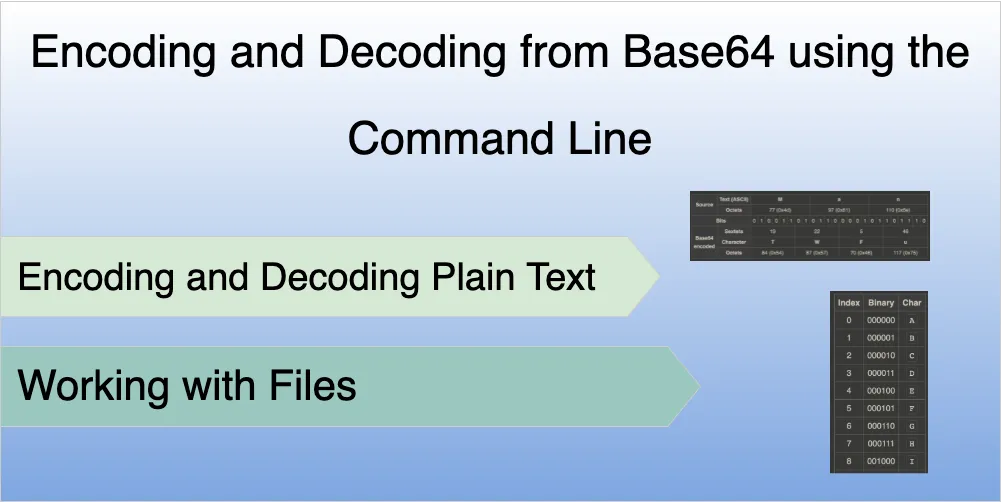Table of Contents
In this post we wil learn how to encode and decode from the base64 format using the base64 command line tool, typically pre-installed on most Unix base operating systems, like MacOS or Linux.

Installation
The bas64 command is usually pre-installed on most Unix based operating systems. You can check if you already have it installed by opening your terminal and typing:
base64 --helpIf installed, you should get some help information printed to your terminal. Otherwise, you can use your operating systems package manager (like apt or brew) to install it manually.
Encoding to Base64
To encode plain text into its base64 format, you can execute:
echo "sample text" | base64Which will print the base64 output:
c2FtcGxlIHRleHQKDecoding from Base64
Let’s use the output from the above example to see how to decode it back into plain text.
We can use the -D option to decode from base64:
echo "c2FtcGxlIHRleHQK" | base64 -DThis will print our original string as output:
sample textEncoding/Decoding Files
We can use the -i and -o options to specify input and output files, respectively.
Consider a file sample.txt in our current directory. If we want to encode the contents of this file into base64, we can run the command:
base64 -i sample.txt -o sample.base64This will convert the contents of the sample.txt file and store them into a new file sample.base64.
For decoding base64 files, we can run:
base64 -D -i sample.base64 -o sample.out.htmlSince Base64 is a binary format, and encodes/decodes directly from binary data, we can use it to convert any type of file (text, video, executable) into Base64 strings